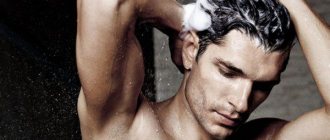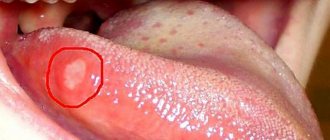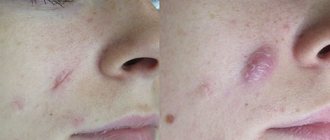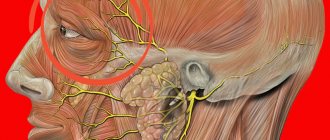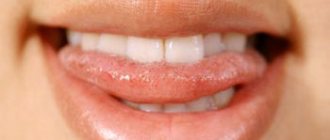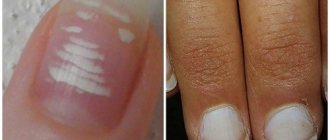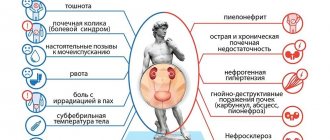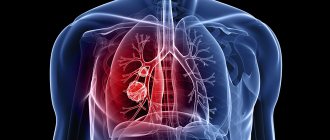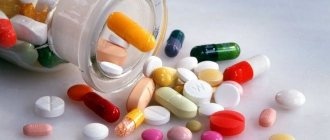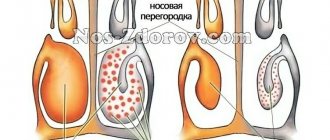If your head itches, the reasons for this can be varied. In most cases, the main factor that provokes severe itching is an internal problem - a disruption in the functioning of one of the body systems. Causes and treatment are always interconnected. A diagnosis is carried out, and based on the research results, the doctor gives recommendations on how to eliminate scalp itching. If the skin itches and peels, it is permissible to use traditional treatment methods based on the use of pharmaceutical drugs and folk recipes. Below are the key factors that can cause an itchy scalp.
Pediculosis
In this case, discomfort is caused by lice. Insects bite a person, inserting a proboscis under the skin and injecting a secretory fluid that prevents blood clotting. As a result, the scalp itches. Parasites appear more often in children than in adults. Pediculosis (infestation of the scalp with lice) is the first thing that comes to mind if the skin itches very much. The more insects appear, the more intense the symptoms appear, including itching on the head. At the initial stage of infection, the signs are more noticeable in the occipital region, behind the ears (back of the head). Here the skin is more sensitive.
Lice live in the back of the head until there are more of them. As the parasites multiply, they spread over the entire surface of the head. At the same time, the skin itches and itches more.
A female louse lays up to 30 eggs (nits) in her hair per day. Its lifespan is on average 30 days.
This means that by the end of this period a huge number of lice will appear. Accordingly, the scalp itches more intensely towards the end of the first month after contact with the infected person.
With lice, itching is the main symptom. Following this comes the feeling that someone is crawling in your hair. If the back of the head and neck itches, at the same time other symptoms appear: the skin peels, a semblance of dandruff appears, but in fact these are nits. With intense infection, wounds form, as the scalp itches very much. If the inflammatory process develops, ulcers will appear. Together with peeling, this will lead to a noticeable deterioration in the condition of the hair.
If such symptoms appear, there is a high probability of lice infection. You need to get rid of headache itching right away. There are several ways to relieve discomfort:
- use of anti-pediculosis drugs;
- treatment with folk remedies.
If you constantly want to scratch your head, the skin has become red, is characterized by dryness and there is a feeling that someone is crawling in your hair, it is recommended to use complex therapy. Emerging signs of pediculosis can be combated by combing out with a special comb. The scalp and hair are first treated with anti-pediculosis agents: shampoos, sprays, solutions based on insecticides, silicones or mineral oils. Vinegar and cranberry juice can make the process of combing out nits easier.
The main causes of itchy scalp
An itchy scalp can be caused by various reasons. Due to the same reasons, hair loss often occurs, dry scalp, red spots, etc. may appear. Also, all this is often accompanied by a burning sensation and severe dandruff. Among the reasons causing hair loss and flaking of the scalp:
- Stress
Nervous stress is usually accompanied by an active release of adrenaline into the blood. As a result, its excess leads to spasm and muscle tension, which is why the whole body begins to itch, including an itchy head.
- Excessive muscle tension
When the neck and shoulder muscles tense for a long time, blood stagnation occurs and blood circulation in the head area is disrupted. This leads to red spots appearing, severe itching and hair loss.
- Dry body skin
It is also often the cause of flaking of the scalp. Oily skin is better in this case, i.e. it softens the hair roots and strengthens them. In addition, dryness can have other causes, for example, active thermal effects due to frequent use of an iron and curling iron - this is quite traumatic for the hair.
- Frequent changes of cosmetic products
The body gets used to paint and cosmetics of the same type. If you change hair cosmetics - shampoo, conditioner, mask - too often, there is a risk that you will have to start treatment, because... itching and flaking of the scalp will appear
- Allergy to household chemicals
The reasons why this kind of reaction occurs are not always clear - the pathogen simply entered the body and began to actively act. As a result, you may experience redness, itching (sometimes quite severe), and skin irritation.
- Hypovitaminosis or lack of sufficient vitamins in the body
This can also cause flaking of the scalp. Here it is enough to adjust your diet and use special vitamin complexes as treatment. This will restore balance in the body
Such causes are not particularly serious and are easily treatable. The main thing is not to experiment with cosmetics, eat right, and don’t be nervous. No specialized treatment is particularly required in such situations.
Seborrheic dermatitis
In adults, this pathological condition occurs more often than in children. It is accompanied by severe itching and other symptoms. Thus, with seborrheic dermatitis, the upper layer of the epidermis thickens, the skin becomes loose, flaky and shiny.
The main cause of the pathology is considered to be disruption of the sebaceous glands. Sebum begins to be produced intensively and clogs the pores.
If itching appears on the scalp, the causes of seborrheic dermatitis may lie in disruptions in the functioning of various systems:
- changes in hormonal levels;
- genetic predisposition;
- chronic diseases;
- malfunction of the digestive tract;
- endocrine system disorders;
- regular stress, fatigue;
- malfunction of the nervous system.
It is important to know that intensive sebum production does not lead to significant changes in the structure of the epidermis. This can be done by harmful microorganisms that begin to actively multiply in beneficial conditions: excess secretory fluid, rapid contamination of the skin. In the presence of one or more factors that provoke this pathological condition, a change in the structure of sebum occurs. The substance becomes thicker.
If the scalp becomes covered with crusts, itches very much, sores appear on the surface of the epidermis (weeping wounds that occur when scratching), oily seborrhea is diagnosed. There is also the opposite condition, in which sebum is produced in minimal quantities. Symptoms: dry scalp, excessive amount of scales, crust formation on the entire surface of the epidermis.
Interestingly, with dry seborrhea the itching is more pronounced than with oily seborrhea. At the same time, hair begins to fall out rapidly. In places where the skin itches, the epithelial scales stick together. In the absence of therapeutic measures, baldness occurs . You should study the question of how to get rid of itchy scalp. Available methods:
- Traditional treatment, which includes pharmaceutical drugs. If the sores on the head itch, use antimicrobial pastes and shampoos: Sulsena, Nizoral, Keto Plus, Algopix, Friederm tar. As a rule, symptoms disappear after several uses of such remedies. The disease can be completely overcome over a long period of treatment.
- In severe cases, there are many crusts on the head. You can remove them using a greasy oil-based mask. The crusts are combed out with a comb, then traditional treatment is applied.
- If scratching occurs, it can be cured using folk remedies. Ointment will help get rid of sores and relieve itching: 1 tbsp. l. olive oil, baby cream and golden mustache juice, add 1 tsp to these ingredients. valerian infusion.
How to eliminate itching?
Today, many advertising campaigns offer various remedies against scalp irritation, severe itching and seborrhea. Some expensive medications actually eliminate dandruff and help get rid of itching, but such artificially synthesized drugs often have a number of side effects.
In mild cases of the disease, homemade anti-dandruff masks and rinses will help eliminate seborrhea and prevent its reappearance. It is quite easy to prepare such mixtures; in addition, masks do not require additional costs. Effective remedies can be made from foods such as onions, nettles, apple cider vinegar and castor oil.
Onion juice
To get rid of itching, you need to regularly rub fresh onion juice into the roots of your hair. Peel one onion and grind the vegetable in a blender. You should end up with a white, homogeneous paste. Squeeze out the juicy mass through cheesecloth. Apply a white translucent liquid to the scalp.
Massage the skin for 15 minutes. The healing effect of onion juice lasts for two hours. You need to wash off the liquid with warm water and shampoo. If the smell of onion remains on your hair, rinse your hair with a solution of essential oil in water (dissolve 2-3 drops of essential oil in a liter of water).
Nettle decoction
This product will help get rid of itching, dandruff, and thinning hair. The nettle infusion contains:
- 1 handful of fresh nettle leaves;
- 1 liter of water.
Wash the young foliage of the stinging plant and place it in a clean pan. Remove damaged, diseased leaves. Fill a handful of pure nettles with 1 liter of water. Place the pan over low heat and bring the solution to a boil.
Strain the strengthening rinse and let the liquid cool slightly. Rinse your hair with the resulting decoction. If you want to give your hair more shine, add 2-3 tablespoons of table vinegar to the liquid.
Onion peel decoction
This rinse will relieve scalp itching after 3-4 uses. To prepare the decoction you will need:
- Peel of 4 onions (30g);
- 500 ml water.
Peel the onion. Try not to use damaged bow skins. Pour hot water over the husks and place on low heat. The liquid should boil for a quarter of an hour. Then leave the broth to steep for 1 hour. You can rinse clean curls with this product every day. For greater effect, rub the decoction into the scalp. There is no need to wash your hair after rinsing; onion broth will not pollute your hair.
Castor oil
Regularly rubbing castor or olive oil into the scalp will help eliminate itching and dandruff. This procedure not only treats seborrhea, but also nourishes the hair, making it silky and shiny. Apply 10 ml of oil to the hair roots with massage movements. Then wrap your head in film and insulate it with a towel. Wash your hair with shampoo after an hour.
Warning: masks containing oil are not recommended for those with oily hair. Mixtures with vegetable fat will only worsen the problem of greasy hair.
Itching in diabetes
If your head itches severely, this pathological condition may be the cause. It is characterized by a decrease in the elasticity of the skin and dryness of the epidermis. As a result, the skin peels and itches. The reason for this condition: improper functioning of the immune, endocrine, and vascular systems.
Metabolic disorders are another factor contributing to the appearance of itchy scalp; treatment should begin with normalizing the general condition of the body.
If you have diabetes, it is difficult to get your scalp and body in order, what should you do in this case? They have a local effect on problem areas using ointments and creams. The main treatment is to lower blood sugar levels and normalize carbohydrate metabolism. You can remove the burning sensation using herbal decoctions: chamomile, sage, string, mint.
Treatment with folk remedies
If you have a feeling of itching on your head, and there is no opportunity to undergo a professional course of treatment, then you can relieve the discomfort, and possibly cure the disease, with the help of folk remedies.
At home, itching can be treated with masks. It is enough to do them once a week. Some of the most effective are:
- Onion + garlic + vegetable oil + lemon juice. Mix everything in equal proportions and rub into the dermis after washing for half an hour. The mask should be washed off with acidified water. This is a very effective remedy if scalp itching occurs after hair coloring.
- Honey + aloe juice + yolk. Liquid honey (4 tbsp) is mixed with aloe leaf juice and an egg. The resulting mass is rubbed into the dermis for 40 minutes and then washed off with shampoo.
- Banana + honey + onion. Half a banana is mixed with honey (1 tbsp) and onion juice (1 tsp). The mixture is applied to the head for 40 minutes and washed off with shampoo.
Decoctions help relieve itching at home. They are best made using onion peels, chamomile, nettle and burdock.
The problem can also be effectively treated with dandelion tincture. Mix flowers (5 tbsp), lemon juice, honey (1 tsp) and vodka (50 ml) and leave for two weeks. This mixture should be rubbed into the scalp before washing.
Treatment of a disease that causes the back of your head to itch, the scalp to itch, and hair to fall out can also be done with medication, but you should not resort to this method without consulting a doctor.
RELATED PUBLICATIONS:
← Previous post
Next entry →
Allergic reaction
This pathological condition can develop in children and adults. The cause of an allergic reaction is often the use of inappropriate cosmetics and care products (shampoos, masks). If there is an itching in the head, the reasons for this usually lie in aggressive chemicals. For example, most modern cosmetics contain sodium lauryl sulfate.
Against the background of severe itching, redness of the skin of the head and sometimes other parts of the body occurs. A rash may appear. If the substance that provoked the pathological condition is very aggressive, urticaria appears. In this case, the child’s itching intensity increases, even if the cause of the allergy is removed. In this case, complex therapy is prescribed, which includes antihistamines, sorbents, and diet.
To prevent your child from developing an allergy on his head, you should choose a neutral shampoo. It would be better if it was a special product for children.
In the event that symptoms of a negative reaction have already appeared (itching, peeling), you need to visit your doctor or take a referral to a trichologist.
For scalp allergies, antihistamines are prescribed. However, the main measure is to eliminate the cause of the pathological condition. In children, the symptoms of a mild allergic reaction disappear very quickly if the factor that provoked the pathology is removed.
Consequences of a stroke
A child usually does not develop this pathological condition. The sensation of itchy skin is one of the consequences that occurs when the brain is damaged. In this case, discomfort can only be removed with the help of general therapy aimed at restoring all body functions. If you are wondering why your head itches, you need to know that the affected areas of the brain send impulses that irritate the upper layer of the epidermis.
Masks and other topical remedies will not help. In such cases, a massage is useful for the scalp, in which:
- hands should lie on the back of the head;
- perform circular movements, moving upward to the ears and frontal lobe.
Massage should be done several times before going to bed. This measure helps normalize blood circulation.
Nervous itching
If you need to find out why your scalp itches, but there are no objective reasons for this phenomenon, you should pay attention to your daily routine and the presence of stress factors. Itching often occurs in highly sensitive people. This happens under the influence of increased release of histamine.
The causes of itchy scalp in this case lie in the fact that the brain produces certain substances that irritate the nerve roots.
Treatment at home is carried out comprehensively: eliminate stress, take sedatives. There is no diagnosis as such. When answering the question of how to treat itching, you should consider folk remedies - soothing herbs (sage, chamomile, string and mint).
Itching of the scalp in the presence of parasites: signs, treatment
Lice, fleas and ticks can lead to a very strong, almost unbearable urge to scratch your head. If parasites are suspected, you can have someone look at the skin under a strong magnifying glass . With sufficient magnification you can see them yourself. But only if the infection occurred a long time ago and the parasites had time to multiply.
Otherwise, you need to take a closer look at the hair - there should be elongated white eggs of parasites. The farther from the skin they are located, the later the infection occurred.
This is what parasites look like on a large scale, which can cause an itchy scalp.
IMPORTANT: Signs of the presence of parasites that you should definitely pay attention to are oily and flaky skin, loss of eyelashes, frequent urges to scratch your eyes.
The problem is that cleanliness plays absolutely no role in this case. Even a person who takes care of his own hygiene can catch the parasite through contact with someone. This is especially true if you have a small child at home. Children are not known for their disgust, and therefore they easily change hats, hairpins, and combs, as a result of which they can catch the parasite.
What pharmaceutical products can help?
- "Nit Free" is a herbal based product. It's safe and natural. Suitable both as a preventive measure and as a means of combating existing parasites.
- “Para-plus” is an aerosol that copes with unexpected neighbors thanks to pesticides. It also damages the membranes of parasites, making them easier to remove.
- “Nuda” contains liquid silicone, which suffocates parasites and even their larvae. Forms a thin film that does not allow oxygen to pass through.
But no matter how good the product is, it is worth combining it with combing. Only a fine-toothed comb is suitable for this procedure.
IMPORTANT: Moreover, you need to comb very carefully and more than once, since parasite eggs are the most difficult to remove.
Read more in the article: Pediculosis in adults and children: symptoms, signs, causes, types, prevention. Treatment of pediculosis with drugs from the pharmacy and folk remedies
Scratching can help get rid of parasites and itching
Hormonal background
During pregnancy and after childbirth, serious changes occur in the body. A woman begins to react differently to familiar products and care products. Itching may appear from shampoo or mask. In addition, sensitivity to certain substances increases, which was not the case before.
The appearance of itching on the head can be triggered by pathological conditions that are characteristic of the body of a pregnant woman, such as dermatosis or obstetric cholestasis, caused by a violation of the outflow of bile.
To relieve discomfort, you should use cooling masks and treat your head with soothing herbs. In addition, the factor that provoked the itching is excluded.


